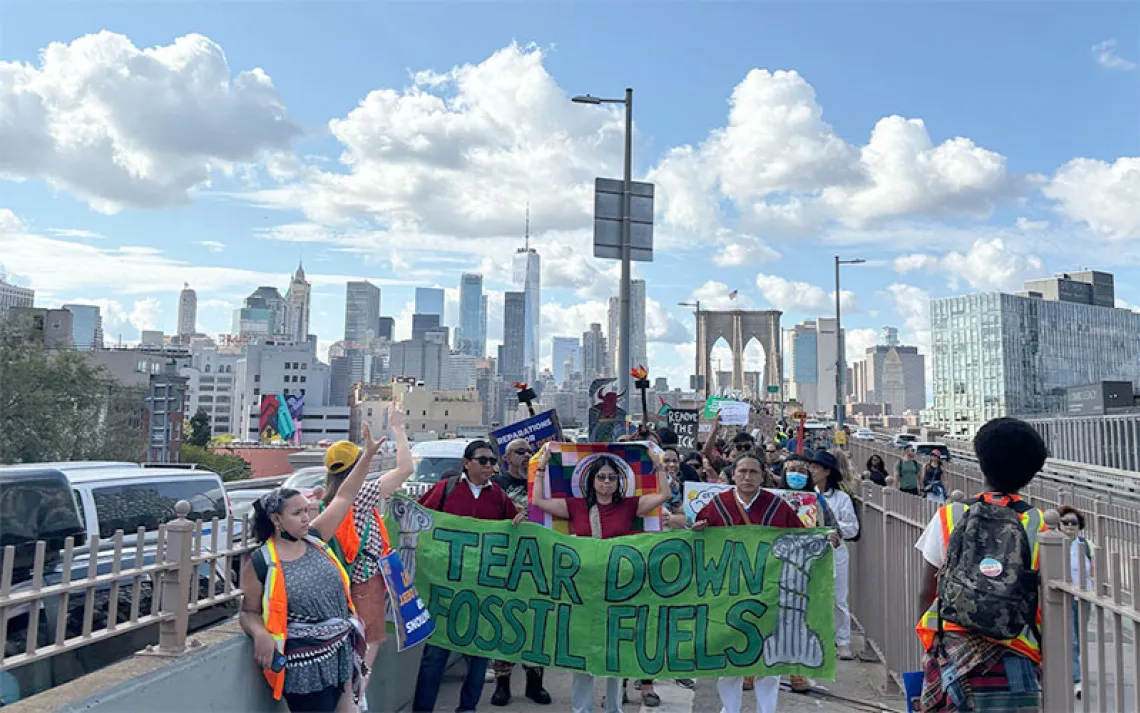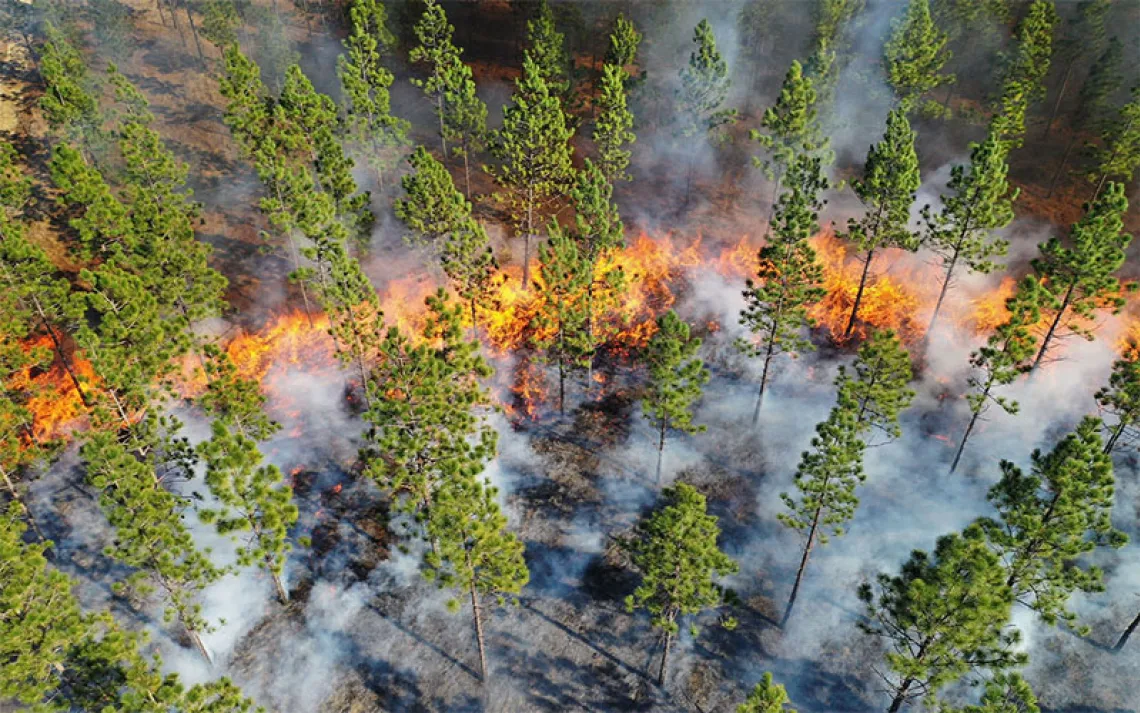What It Means to Sign On to the New Outdoorist Oath
A fresh nonprofit celebrates the nexus where the planet, inclusion, and adventure intersect

The founders of Outdoorist Oath, from left: Wyn Wiley (also known as alterego "Pattie Gonia"), Teresa Baker, and José González. | Photos courtesy of Outdoorist Oath
“The baby Weddell seal has not grown into her flippers. She is awkward. She does not want to swim. She does not know she can breathe underwater.” José González is reciting to us, 250 outdoor enthusiasts, a benediction from Alexis Pauline Gumbs’s book Undrowned: Black Feminist Lessons From Marine Mammals. He’s telling us that right now, we’re like those seals, unsure of our capability. From our Zoom squares, we’re here for a workshop in which we’ll be inducted into the newly formed Outdoorist Oath, a nonprofit that’s working to close gaps in intersectionality and to show people who care about people, the planet, and adventure how to advocate for all of those things. At the end, we’ll recite a secret pledge, but for now, we’re flailing baby seals, trying to figure out how to navigate this complicated space. From one corner of my screen, outdoor diversity activist Teresa Baker chimes in: “It’s going to be wild and weird as hell, but amazing.”
The Outdoorist Oath is the brainchild of three accomplished outdoor advocates: Baker, founder of the Outdoor CEO Diversity Pledge and the In Solidarity Project; José González, the founder and director emeritus of Latino Outdoors; and Wyn Wiley, the photographer and LGBTQIA activist behind Pattie Gonia, the outdoor world’s (and arguably, Instagram’s) most impactful drag queen.
All were busy working at the intersection of advocacy, inclusion, and environmental protection in the outdoor world. They were leading DEI, environmental stewardship, or allyship training for companies, brands, and nonprofits. But they realized there were some gaps—individuals didn’t have access to that kind of advocacy education. And in the outdoor world, which is slowly confronting its legacies of exclusion, difficult and intersectional modes of advocacy were being siloed or sidelined, even though they’re heavily interrelated.
“They continued to get this feedback: When can people get this education? And how can I practice my allyship?” says Gabaccia Moreno, Outdoorist Oath’s executive director (pictured below at Outdoor Retailer with the Oath's founders).

The three founders dreamed up the Oath as a way to spread those lessons and to build a framework for people to individually focus their advocacy work. They would provide guidelines and education, build the bones of a community, and then give people permission to figure out ways that worked for them as individuals. “There are lots of spaces in the outdoors where if you’re not perfect, you get canceled,” says Wiley. “We do not enjoy that.”
The Oath is both a pledge and a framework. Moreno says they chose the word “outdoorist” because it was broad and inclusive. The outdoor world is a big place, and they wanted to make it as wide-ranging as possible. “The Oath is a commitment, and how we welcome folks into the commitment is a two-hour workshop that gives them a toolkit,” she explains. “We provide this as a free educational tool online, and even in that virtual space, there’s magic that’s created.”
It focuses on three different tenets: planet, inclusion, and adventure. But González says the secret magic lies in the overlap therein—the edge effect. It’s where, for instance, protecting crags for climbing can also preserve ecosystem connectivity. Or where bringing someone who has never previously been hiking into the woods can create a brand-new environmental advocate.
The Outdoorist Oath founders acknowledge that addressing the enormous structural issues of exclusion and environmental collapse is overwhelming, and so they focus on what they call a “personal action compass.” It’s a plan, based on the Japanese principles of ikigai, that asks each individual to focus their personal talents and joys on the advocacy work that needs to happen.

Sign up to receive Sierra News & Views
Get articles like this one sent directly to your inbox weekly.
With this action you affirm you want to receive Sierra Club communications and may vote on policy designated by the Sierra Club Board.
“The kind of action you can take is different from what I can take, and this is really about inviting everyone to reflect on how those actions can have a ripple effect, and to know that they’re not alone,” Moreno says. “We think about ‘what’s my role in a social change ecosystem?’ because we need all the parts.”
They introduce what they call wayfinding methods—based on metaphors of fire, water, and earth—like prescribed burns that can destroy old structures to give ways to new ones, as a way to start thinking about action. “Showing up for the planet is one thing, but we also want to show up for each other, and show up for adventure too,” Moreno says.
And, she says, people have indeed been showing up. “It’s been really wild to see how ready the community is for something like this. We got 3,000 signups in a few weeks.” As Outdoorist Oath grows, Moreno says they’re seeing how the outdoor industry is listening and responding to the outdoor community. She adds that the conversations have been shifting to include environmental justice and to welcome that intersectionality they’re trying to incorporate.
Moreno says they’re still in early days, but they’re hoping that the Oath will eventually be a framework like Leave No Trace—a standalone ethic that transcends many different ecosystems and groups.
For now, in the spirit of wayfinding methods, they send us out after we say our Oath with some fitting words about mycelium leadership, and the ways mushrooms connect to grow and make change. Ecosystems, after all, have a lot to teach us all about social change.
 The Magazine of The Sierra Club
The Magazine of The Sierra Club



